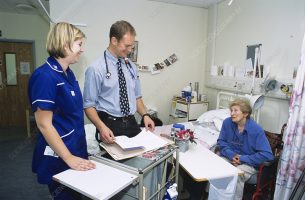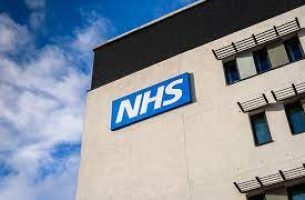Record a doctors name rank & number It’s very easy to forget things. We all do it (“Even me”, CKDEx Ed) So. Whenever you interact with a doctor (or any health professional) – face to face, phone, cyber – record the following information. Why? You will forget later, and may need to contact them again. Name. First […]
Read More10 good reasons to see a doctor In this article we will describe 10 good reasons to see a doctor. MyHSN recommends you see a doctor if you have any of these conditions. 1. You have a persistent, high fever A fever is one way your body naturally fights infection. However, if you have a […]
Read MoreWhats the key difference between ICU and CCU? There is not a huge difference between intensive and coronary care care units. They both specialise in monitoring and treating patients who need 24-hour care. Medium sized and large hospitals usually have both. A CCU focuses on patients with heart problems, whilst an ICU provides care for […]
Read MoreWhats the difference between ICU and HDU? The main difference between an intensive care (ICU) and high dependency unit (HDU) is the nurse-to-patient ratio. Usually an ICU patient requires one-to-one nursing care, whilst a high dependency patient requires one nurse to every two patients. In contrast, on a normal ward two qualified nurses often care […]
Read More5 types of medical bias We all have biases. We all have weaknesses. We should not – but we do. But you can learn to recognise and reduce them. When you first start off as a doctor, the primary motive for taking a history is information gathering. But as you transition to fully-fledged doctor history-taking, […]
Read MoreWhat is NHS choose and book advice and guidance (A&G)? Advice and Guidance (A&G) allows a GP in the NHS to seek email advice from a specialist hospital consultant. How does NHS A&G work? The GP is able to attach documents to the advice request, which may include diagnostic results, scanned images (e.g. ECGs) or […]
Read MoreWhat makes a good hospital ward? The views of the patients and their families are essentially important. Three key components of high-quality ward care are important to patients: communication, staff attitudes and hygiene. Communication Patients are dependent on staff to keep them abreast of investigations and treatments – both results of previous ones, and information […]
Read MoreCan you email my GP? No, not normally. Sorry. Rather it depends [“thanks MyHSN!” Ed]. Emailing a GP and Online Consultations are very different ways of contacting your surgery. Not all surgeries provide online consultations. We will explain. Online consultations (or ‘e-consults’) Online consultations are where you message your surgery by completing an online webform […]
Read MoreGet the best out of a hospital outpatient appointment In this article, we will describe 10 top tips to get the best out of a hospital outpatient appointment. Symptoms. Write down details of your symptoms, including when they started and what makes them better or worse Questions. Write down your two or three most important questions Plan your […]
Read MoreHow you can help your doctor reduce errors In this article we will describe how to help a doctor reduce their errors. Doctors are human. Hence doctors, like all humans, make mistakes. But. There are things you can do to help your doctor reduce the likelihood of errors. Knowledge The doctor may have a lack […]
Read More




